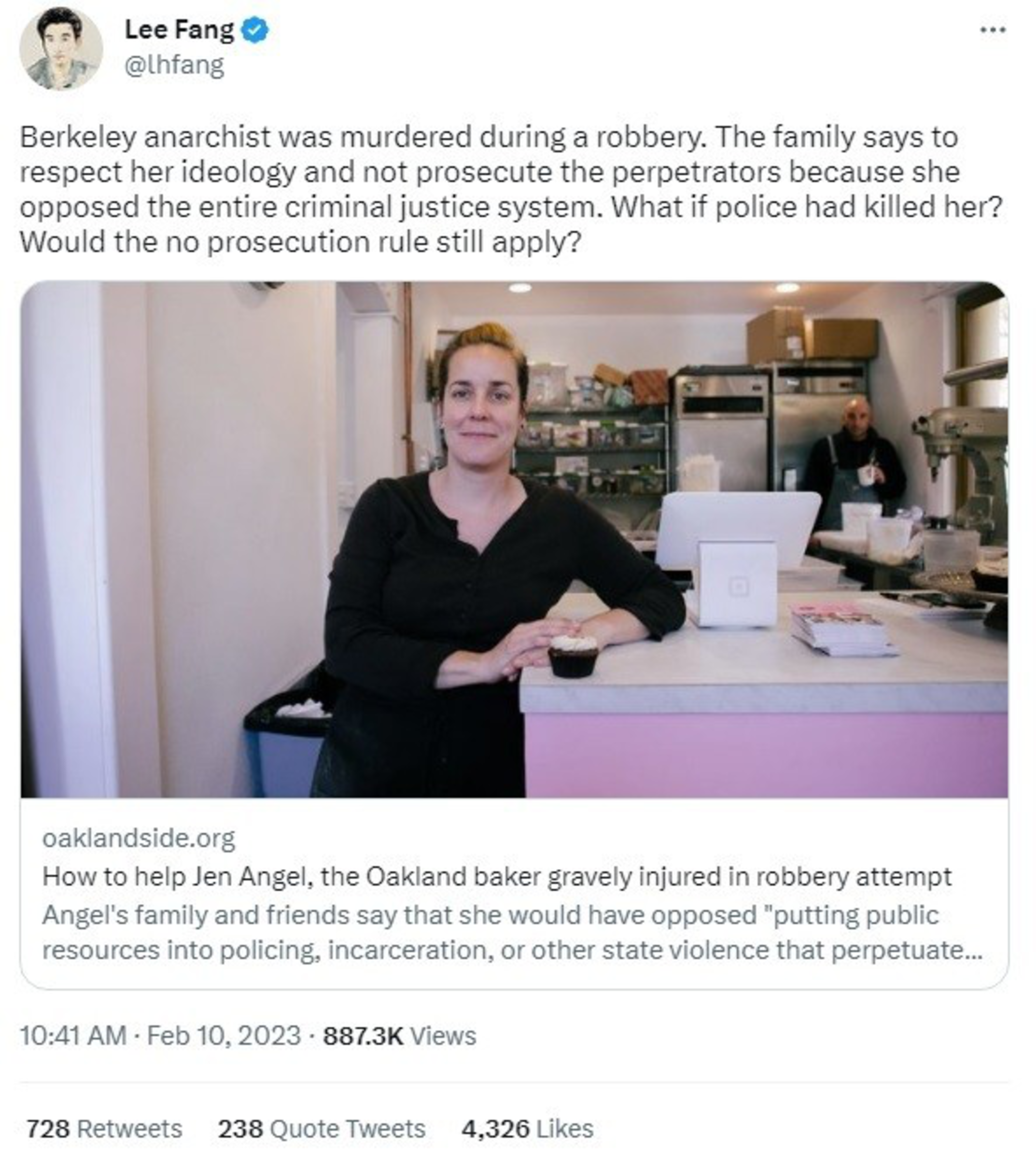Friends of Jen Angel—an Oakland baker who was killed in a violent robbery in February—confirmed that a person who was attacked on the streets of Berkeley on Sunday evening was planning to attend Angel’s memorial before she was herself robbed.
Ryan Fletcher, a friend and co-organizer of Angel’s memorial, acknowledged that some may seek to frame the most recent attack as an indictment of the principles of restorative justice that Angel felt passionately about. However, he said that doing so would only add up to “conspiratorial thinking.”
“The connection between these acts of violence is that we live in a society that is deeply out of balance,” he said in a statement to The Standard. “Policing and prisons will not solve this crisis.”
The statement was composed by Fletcher and a group of people who knew Angel and managed the guest list of her private memorial event in Oakland. Others involved in the statement have asked The Standard not to publish their names, noting that their friend’s death has sparked a politically charged backlash.
One prominent example of the fraught online discourse surrounding Angel is a since-deleted tweet from journalist Lee Fang, who questioned the motivations of Angel’s friends and family the day after she died.

The victim in Sunday’s robbery—which was first reported by the San Francisco Chronicle (opens in new tab)—has not been publicly identified.
According to the Berkeley Police Department, officers were dispatched to investigate a robbery near Sacramento and Derby streets around 5:10 p.m. that day. The victim’s eye was reportedly swollen shut, and she had multiple lacerations on her face and body. She was taken to a local hospital.
Fletcher and Angel’s other loved ones, who have reaffirmed the baker and activist’s belief in restorative justice and alternatives to policing and prisons, told The Standard that they urge the public to keep Angel’s values in mind in light of this recent assault.
“We must address the root causes of violence and social conflict—and that starts with looking at how we use public resources and whether all people have the means to meet their needs and live a dignified life,” Fletcher said, adding that “more dialogue in support of restorative and transformative justice is needed because of these instances of violence—the dialogue isn’t the cause of them.”
